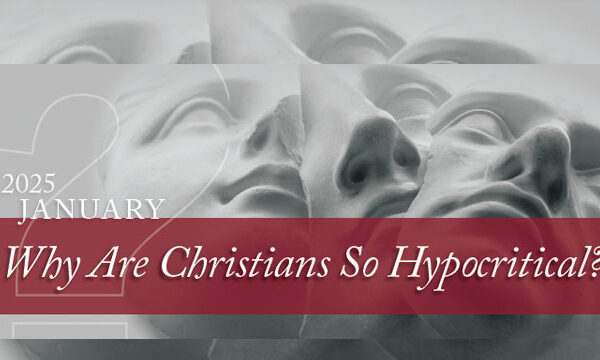Back to series



To Increase Humility
Click here to open a Print - Friendly PDF
1 Confess your sins to God often, and consider what all that evil amounts to, which you then charge upon yourself. Do not look at them as scattered at large distances in the course of a long life, but unite them into one continued representation. If all our sins and follies were heaped against us, we would certainly appear vicious and miserable. Possibly this exercise really applied to your spirit may prove useful.
2. Remember that we usually criticize others on slight grounds and for little cause, and that one fly is enough to spoil the ointment as far as they are concerned. Since we are so severe to others, let us consider that whatever good they can think or say of us, we can tell them of hundreds of base, and unworthy, and foolish acts, any one of which were enough to destroy someone else’s reputation. So let them destroy our over-high opinions of ourselves.
3. When our neighbor is lifted up by public fame and popular acclaim, we cry out that the people is a herd of unlearned and ignorant persons, poor judges and fickle. Let us use the same art to humble ourselves, and never take delight and pleasure in public acclamation.
4. We change our opinion of others by their kindness or unkindness towards us. If my patron is bounteous, I think him wise and noble, and his faults are but small blemishes, while his virtues are mountains. But if he proves ungenerous, he is ill-natured, covetous, gluttonous; all he speaks is flat, and dull, and ignorant. This is indeed unjust towards others, but a good instrument if we turn the edge of it upon ourselves. It is reasonable that we should at least not flatter ourselves with too kind opinions.
5. Call to mind every day some one of your foulest sins, or the most shameful of your disgraces, or your most indiscreet act, or anything that most troubled you, and apply it to the present swelling of your spirit, and it may help allay it.
 6. Pray often for God’s grace, with all humility of gesture and passion of desire, and interpose many acts of humility, by way of confession to God, and reflection upon yourself.
6. Pray often for God’s grace, with all humility of gesture and passion of desire, and interpose many acts of humility, by way of confession to God, and reflection upon yourself.
7. Avoid great offices and positions, and those conditions where many ceremonies and occasions though necessary, will destroy the sobriety of your thoughts. It is certain that God is as greatly glorified by your example of humility in a low or temperate condition as by your generosity in a great and dangerous one.
8. Do not become introspective about your own humility or any other grace with which God has enriched your soul. For since God often hides from his servants the sight of those excellencies which shine to others so that he may secure the grace of humility, it is good that you do so yourself. And if you behold a grace in yourself, be sure to give Him thanks for it, that you may not boast in that which is not your own.
Consider how you have soiled it by handling it with dirty fingers, with your own imperfections. Spiritual pride is very dangerous, not only because it spoils so many graces by which we draw near the Kingdom of God, but also because it so frequently creeps in upon the spirit of holy persons. It is not a wonder for a beggar to call himself poor, or a drunkard to confess that he is not a sober person. But for a holy person to be humble, for one whom all men consider a saint to fear lest he himself become a devil, nesses, and to uncover his bad tendencies, is as hard as for a prince to allow himself to subject to discipline like the lowest of his servants.
9. Often meditate upon the effects of pride and humility. First, that pride is like a cancer, and destroys the beauty of the most excellent gifts and graces, while humility crowns them all. Second, that pride is a great hindrance to the perceiving of the things of God, and humility an excellent instrument of spiritual wisdom. (Cf. Matthew 11:25) Third, that pride hinders the acceptation of our prayers, but humility pierces the clouds. Fourth, that humility is but truth and all pride is a lie. Fifth, that humility is the most certain way to real honor, and pride is ever affronted and despised.
Sixth, that pride turned Lucifer into a devil, and humility exalted the Son of God above every name, and placed Him eternally at God’s right hand. Seventh, that God “resists the proud, but gives grace to the humble”: grace and pardon, remedy and relief, contentment in all conditions, tranquility of spirit, patience in afflictions, love abroad, peace at home, and utter freedom from contention and the sin of censuring others and the trouble of being censured themselves.
For the humble man will not judge his brother for the splinter in his eye, being more troubled by the beam in his own eye. He is willing to be reproved, because himself has cast the first stone at himself, and is not surprised that others are of the same mind.
 10. Remember that the blessed Savior of the world has done more to secure this grace than any other. His whole life was a continued example of humility, a vast descent from the glory of the Father to the womb of a poor maiden, to the form of a servant, to a state of poverty. It would be a good but reasonable design if we would be as humble in the midst of our greatest imperfections and basest sins as was Christ in the midst of His fullness of the Spirit and perfect life.
10. Remember that the blessed Savior of the world has done more to secure this grace than any other. His whole life was a continued example of humility, a vast descent from the glory of the Father to the womb of a poor maiden, to the form of a servant, to a state of poverty. It would be a good but reasonable design if we would be as humble in the midst of our greatest imperfections and basest sins as was Christ in the midst of His fullness of the Spirit and perfect life.
11. Drive away all flatterers and never endure them. He who allows himself to be so abused by another not only loves to have his own opinion of himself heightened and cherished, but is a fool for entertaining mockery.
12. Never change what you are doing when someone approaches you suddenly. Do not try to seem studious or devout before him, but be the same as you were to God and yourself in privacy.
13. To the same purpose, it is of great use that he who would preserve his humility should choose some spiritual person to whom he shall be accountable to reveal his very thoughts and imaginations, every act of his and all his behavior towards others in which there may be danger. By such an openness of spirit he may expose every blast of vain-glory, every idle thought, to be chastened and lessened by the rod of spiritual discipline. He who finds himself tied to confess every proud thought, every vanity of his spirit, will also perceive they must not dwell with him nor find any kindness from him; and, besides this, the nature of pride is so shameful and ugly that the very revealing of it is a huge mortification and means of suppressing it.
14. Anyone who knows the laws of God, the rewards of virtue, the consequences of sin, and in spite of all this, runs foolishly into his sin and his ruin, merely because he is a fool, is like a madman rushing to his death. He that can think great and good things of such a person may admire a swine for wisdom and go for counsel to the prodigal and trifling grasshopper.

Jeremy Taylor
ChaplainJeremy Taylor, Chaplain, (1613-1667) served as chaplain to King Charles I, and was imprisoned at least twice by Cromwellian authorities. Holy Living was written in the year after the execution of Charles I, and later became an early influence in the life of John Wesley. The book has been published repeatedly over the years; this version’s language has been modernized for easier access by present-day readers.

 COPYRIGHT: This publication is published by C.S. Lewis Institute; 8001 Braddock Road, Suite 301; Springfield, VA 22151. Portions of the publication may be reproduced for noncommercial, local church or ministry use without prior permission. Electronic copies of the PDF files may be duplicated and transmitted via e-mail for personal and church use. Articles may not be modified without prior written permission of the Institute. For questions, contact the Institute: 703.914.5602 or email us.
COPYRIGHT: This publication is published by C.S. Lewis Institute; 8001 Braddock Road, Suite 301; Springfield, VA 22151. Portions of the publication may be reproduced for noncommercial, local church or ministry use without prior permission. Electronic copies of the PDF files may be duplicated and transmitted via e-mail for personal and church use. Articles may not be modified without prior written permission of the Institute. For questions, contact the Institute: 703.914.5602 or email us.
-
Recent Podcasts
From Anti-Christian to Pastor – Brian Smith’s Story
by Jana Harmon, Brian Smith on January 17, 2025Brian grew up in a small Georgia town...Read More
-
Time With God
by Aimee Riegert, J.I. Packer on January 10, 2025
-
Faith and Reason – Henare Whaanga’s Story
by Henare Whaanga, Jana Harmon on January 3, 2025
-
Recent Publications
Why Are Christians So Hypocritical?
by Christopher L. Reese on January 1, 2025Oh, the hypocrisy of those Christians—they talk so...Read More
-
How Artists and Their Art Can Point Us to the Creator
by Russ Ramsey on December 2, 2024
-
What about Jesus’s Childhood?
by Jim Phillips on December 1, 2024
0
All Booked
0.00
All Booked
0.00
All Booked
23931
GLOBAL EVENT: Sentenced to Death with Maryam Rostampour-Keller, 8:00PM ET
https://www.cslewisinstitute.org/?event=global-event-sentenced-to-death-with-maryam-rostampour-keller-800pm-et&event_date=2025-02-07®=1
https://www.paypal.com/cgi-bin/webscr
2025-02-07

Next coming event
Days
Hours
Minutes
Seconds
GLOBAL EVENT: Sentenced to Death with Maryam Rostampour-Keller, 8:00PM ET
On February 7, 2025 at 8:00 pmSpeakers

Jeremy Taylor
Chaplain
Team Members

Jeremy Taylor
ChaplainJeremy Taylor, Chaplain, (1613-1667) served as chaplain to King Charles I, and was imprisoned at least twice by Cromwellian authorities. Holy Living was written in the year after the execution of Charles I, and later became an early influence in the life of John Wesley. The book has been published repeatedly over the years; this version’s language has been modernized for easier access by present-day readers.





